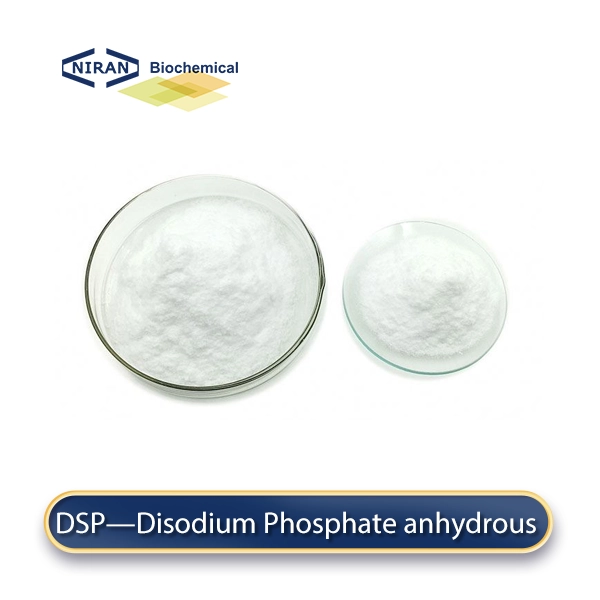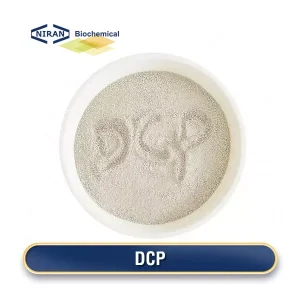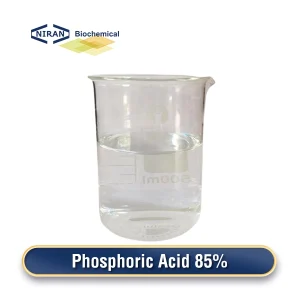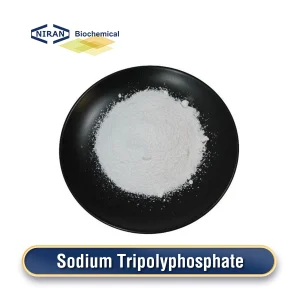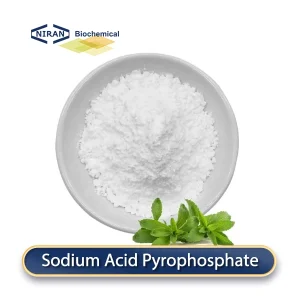Niran Biochemical
YOUR RELIABLE FOOD INGREDIENTS
Send Inquiry
Home » Products » Phosphates » DSP—Disodium Phosphate Anhydrous
DSP—Disodium Phosphate Anhydrous
- CAS: 7558-79-4
- Chemical Formula: Na2HPO4
- Certification: KOSHER, ISO, HALAL, FSSC22000, BRC, etc.
- Standard:
- MOQ: 1000KG
- Shelf Life: 2 Years
Inquire Product
Product Description
What is DSP—Disodium Phosphate Anhydrous?
Disodium phosphate anhydrous is a compound that does not contain crystalline water molecules. It appears as a white crystalline powder, is easily soluble, and its aqueous solution is alkaline. It is widely used in food as an acidity regulator, emulsifier, stabilizer, and moisture retainer.
One substance that doesn’t contain crystalline water molecules is disodium phosphate anhydrous. It is freely soluble, has an alkaline aqueous solution, and takes the form of a white crystalline powder. It is frequently used in food as an emulsifier, moisture retainer, stabilizer, and regulator of acidity.
Disodium phosphate anhydrous is mainly prepared in China through neutralization and dehydration. The neutralization method is to react phosphoric acid with sodium carbonate or sodium hydroxide to produce disodium hydrogen phosphate, which is then evaporated, concentrated, and dried to obtain an anhydrous product.
The dehydration method is to heat and dehydrate monohydrate or dihydrate disodium hydrogen phosphate at high temperature to directly obtain disodium phosphate anhydrous. At present, the dehydration method is the mainstream method for preparing anhydrous disodium hydrogen phosphate in China.
Because the dehydration method is simple in process and low in cost, the existing aqueous disodium hydrogen phosphate raw materials can be used to obtain an anhydrous product by heating and dehydrating, so it is very suitable for large-scale production.
Related parameters:
| Item | Unit | Specification |
| Solubility | Freely soluble in water. Insoluble in ethanol | |
| PH (1% solution): | 8.5-10.0 | |
| Assay(as Na2HPO4) | % | 98% Min |
| P2O5(on anhydrous basis) | % | Between 49 % and 51 % |
| Flouride | mg/kg | Not more than 10 |
| Heavy metal as (Pb) | mg/kg | No more than 10 |
| Arsenic (As) | mg/kg | Not more than 3 |
| Water insoluble matter | % | 0.2 %(on the anhydrous basis) |
| Lead | mg/kg | No more than 2 |
| bulk density | g/l | 650-750 |
| Mercury (Hg) | mg/kg | Not more than 1 |
| Cadmium (Cd) | mg/kg | Not more than 1 |
| Loss on drying(moisture) | % | Not more than 5% |
| Particle size distribution | % | Through100mesh 80% Min |
Recommended dosage:
| Food Name | Maximum usage (g/kg) |
| Bread | 1 g/kg |
| Cake | 1 g/kg |
| Ice cream | 1 g/kg |
| Yogurt | 0.7 g/kg |
| Cheese | 1 g/kg |
| Dairy drinks | 1 g/kg |
| Fruit drinks | 0.5 g/kg |
| Sports drinks | 0.7 g/kg |
| Canned food | 0.6 g/kg |
| Sauces and condiments | 0.6 g/kg |
| Candy | 1 g/kg |
| Chocolate | 1 g/kg |
| Jelly | 0.7 g/kg |
| Meat products (such as sausages and ham) | 1 g/kg |
| Milk tea | 0.7 g/kg |
Disodium Phosphate Anhydrous has a wide range of uses
1. Acidity regulator: adjusts and stabilizes the pH value of food to prevent acidity or alkalinity from affecting the taste and shelf life of food.
2. Emulsifier: helps oil and water mix evenly, prevents separation, and improves the texture and appearance of food.
3. Stabilizer: increases the stability of food, prevents ingredient separation and crystallization.
4. Anticaking agent: prevents powdered or granular food from agglomerating during storage and maintains its fluidity.
5. Nutrition enhancer: provides sodium and phosphorus elements to enhance the nutritional value of food.
User asked question:
Q: What is the difference between disodium phosphate anhydrous and sodium phosphate dihydrate?
A: Disodium phosphate anhydrous does not contain water of crystallization, while sodium phosphate dihydrate (such as monohydrate or dihydrate) contains water of crystallization. Disodium phosphate anhydrous is suitable for moisture-sensitive applications and has higher purity and stability.
Q: How to store disodium phosphate anhydrous?
A: Disodium phosphate anhydrous should be stored in a cool, dry, well-ventilated place, avoiding contact with humid environment to prevent moisture absorption and agglomeration.

